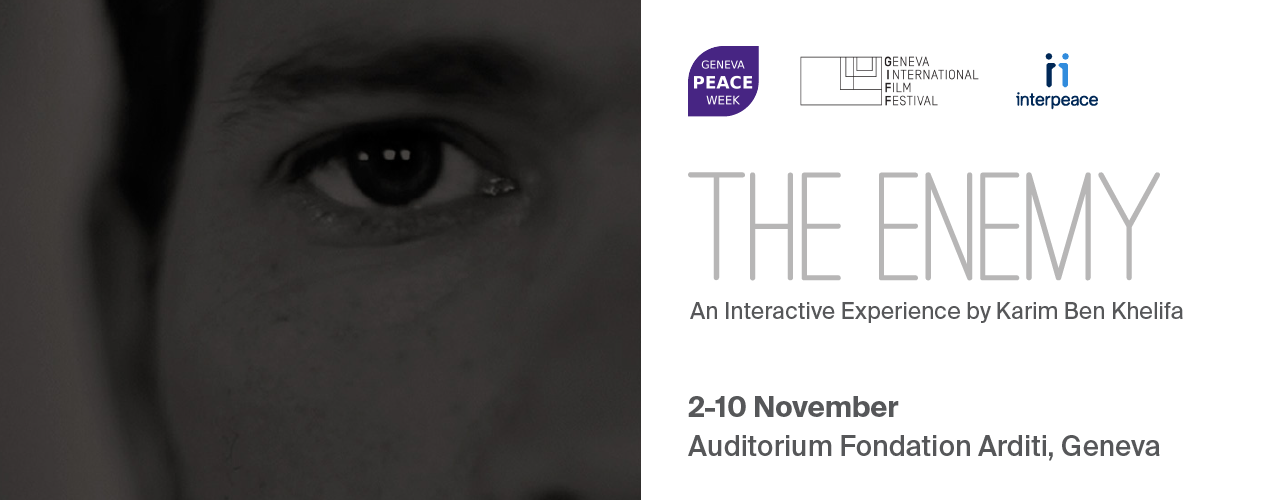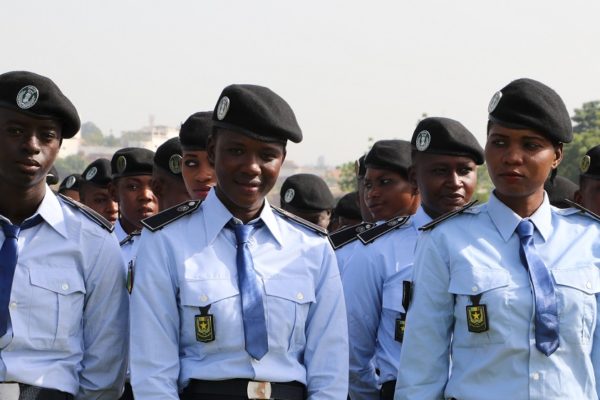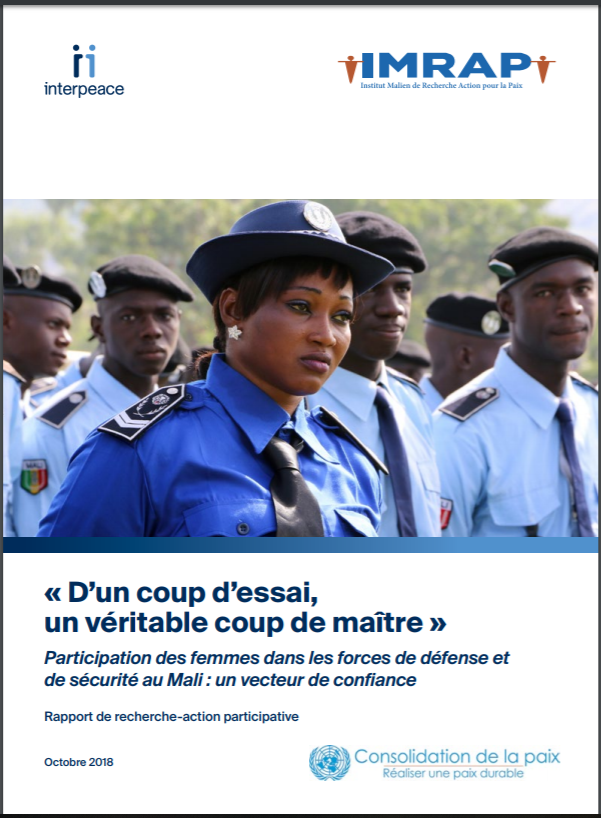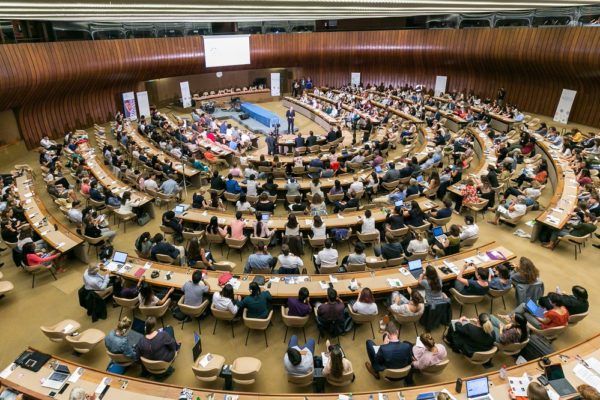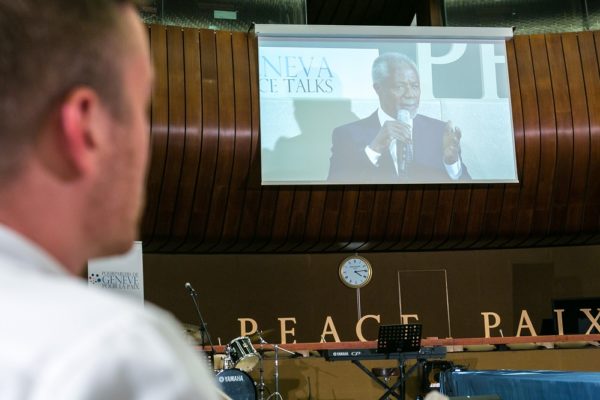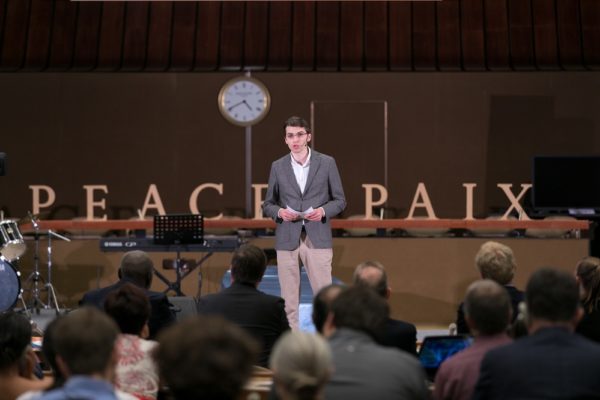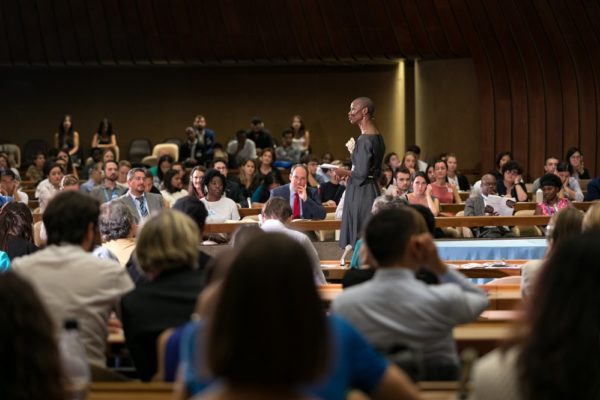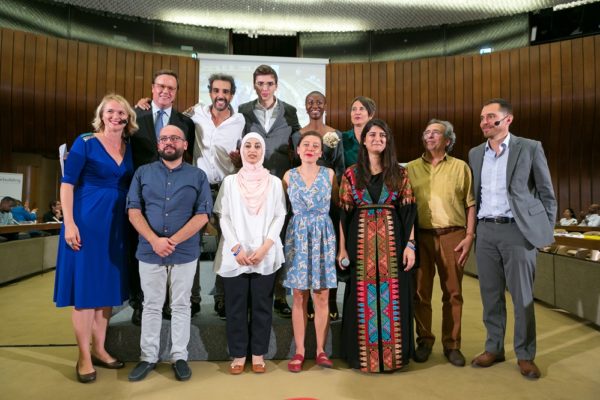A unique and immersive experience into conflict narratives – “The Enemy” will be presented during the Geneva International Film Festival and the Geneva Peace Week
Interpeace and the Geneva International Film Festival (GIFF), are pleased to present in the context of the Geneva Peace Week, the virtual reality project The Enemy by Karim Ben Khelifa. The Enemy is a collective immersive experience that offers an innovative and human perspective on the realities of war and transports viewers face-to-face with fighters from three conflict zones: among the “Maras” of El Salvador, in the Democratic Republic of the Congo, and in Israel and Palestine. Their testimonies and confessions about their lives, their experiences and the way they look at their “enemy” will allow viewers to better understand their motivations and their humanity.
Working in conflict zones for over 24 years has shown Interpeace that peacebuilding needs to enhance trust between individuals and between all groups in society. Violent conflict usually results in the breakdown of trust. Therefore, deconstructing toxic narratives about “the enemy” and establishing the basis for constructive dialogue are key factors to build sustainable peace. Through empathy and respect, different sectors of society can engage in dialogue and develop a common vision for the future. The Enemy provides visitors with this unique experience – engaging in dialogue with fighters from different conflict zones and as a result, providing them with a new way to talk about conflict. The immersive experience breaks with the imagery of war as the media has shown us so far: giving voice to those who carry violence, allowing them to introduce themselves, to explain their motivations and dreams. As a result, The Enemy confronts the points of view of the visitors and the combatants, providing a safe space for dialogue and contributing to build mutual understanding.
Thanks to the latest innovations in virtual reality, the visitors of this installation will be in the same physical space as the fighter’s interviewed and filmed by the photojournalist Karim Ben Khelifa. In this regard, the viewers are taken to the heart of the event via an innovative and unique device, which is the goal pursued by what is called immersive journalism. The Enemy is neither a static experience nor a solitary experience. It can hold several visitors simultaneously, all equipped with Oculus Rift helmets. Neurocognitive techniques were applied to the experiment to try to reinforce the involvement of the visitors.
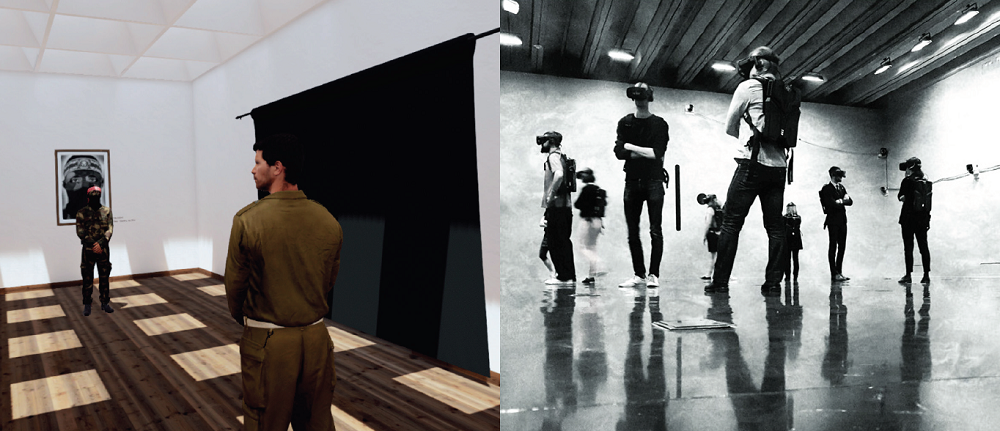
Images from the "The Enemy" Project by Karim Ben Khalifa.
The project has been exhibited at the Arab World Institute in Paris, at the Tel Aviv International Film Festival, at the MIT Museum in Boston and the Phi Centre in Montreal. In November 2018, The Enemy will be shown for the 5th time worldwide, and for the first time in Switzerland.
The installation will be located in Geneva at the Auditorium Fondation Arditi, from 2- 10 November, 2018. The experience lasts under an hour and will have a capacity of 5 people per hour. Don’t miss out on the opportunity to experience this virtual reality project!
Purchase your ticket here to secure a slot.
Learn more about Karim Ben Khelifa and his experience in the development of this project here.
Learn more about the events co-hosted by Interpeace at the Geneva Peace Week.
